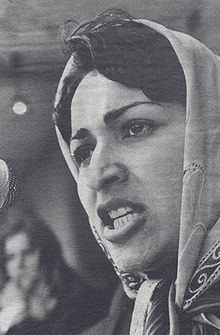
The Revolutionary Association of the Women of Afghanistan (RAWA) is a women's organization based in Kabul, Afghanistan, that promotes women's rights and secular democracy. It was founded in 1977 by Meena Keshwar Kamal, an Afghan student activist who was assassinated in February 1987 for her political activities. The group, which supports non-violent strategies, had its initial office in Kabul, Afghanistan, but then moved to Pakistan in the early 1980s.

The treatment of women by the Taliban refers to actions and policies by various Taliban regimes which are either specific or highly commented upon, mostly due to discrimination, since they first took control in 1996. During their first rule of Afghanistan (1996–2001), the Taliban were notorious internationally for their misogyny and violence against women. Since 1996, women were mandated to wear the burqa at all times in public. In a systematic segregation sometimes referred to as gender apartheid, women were not allowed to work, nor were they allowed to be educated after the age of eight. Women seeking an education were forced to attend underground schools, where they and their teachers risked execution if caught. They were not allowed to be treated by male doctors unless accompanied by a male chaperone, which led to illnesses remaining untreated. They faced public flogging and execution for violations of the Taliban's laws. The Taliban allowed, and in some cases encouraged, marriage for girls under the age of 16. Amnesty International reported that 80 per cent of Afghan marriages were forced.

Pashtuns, also known as Pakhtuns or Pathans, are an Eastern Iranian ethnic group historically native to the Pashtunistan region of southern Afghanistan and northwestern Pakistan. They historically were also referred to as Afghans until the 1970s, after the term's meaning had become a demonym for members of all ethnic groups in Afghanistan.
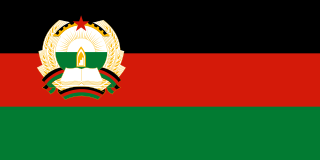
The Democratic Republic of Afghanistan (DRA), renamed the Republic of Afghanistan in 1987, was the Afghan state during the one-party rule of the People's Democratic Party of Afghanistan (PDPA) from 1978 to 1992. It relied heavily on assistance from the Soviet Union for most of its existence, especially during the Soviet–Afghan War.
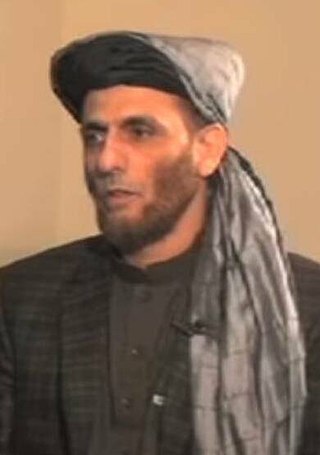
Faryadi Sarwar Zardad is an Afghan former warlord. In 2005 he was convicted in the United Kingdom, for conspiring to take hostages and conspiring to torture during the 1990s in Afghanistan.
A 502-delegate loya jirga convened in Kabul, Afghanistan, on December 14, 2003, to consider the proposed Afghan Constitution. Originally planned to last ten days, the assembly did not endorse the charter until January 4, 2004. As has been generally the case with these assemblies, the endorsement came by way of consensus rather than a vote. Afghanistan's last constitution was drafted for the Democratic Republic of Afghanistan in November 1987.
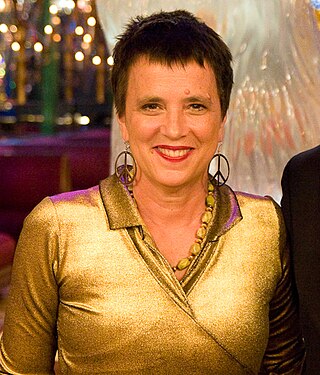
V, formerly Eve Ensler, is an American playwright, author, performer, feminist, and activist. V is best known for her play The Vagina Monologues. In 2006 Charles Isherwood of The New York Times called The Vagina Monologues "probably the most important piece of political theater of the last decade."

Meena Keshwar Kamal, commonly known as Meena, was an Afghan revolutionary political activist, feminist, women's rights activist and founder of Revolutionary Association of the Women of Afghanistan (RAWA), who was assassinated in 1987.
Islamic feminism is a form of feminism concerned with the role of women in Islam. It aims for the full equality of all Muslims, regardless of gender, in public and private life. Islamic feminists advocate women's rights, gender equality, and social justice grounded in an Islamic framework. Although rooted in Islam, the movement's pioneers have also utilized secular, Western, or otherwise non-Muslim feminist discourses, and have recognized the role of Islamic feminism as part of an integrated global feminist movement.
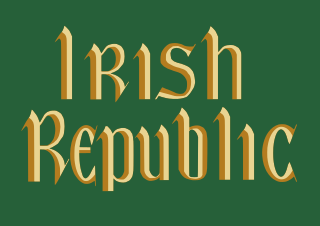
Cumann na mBan, abbreviated C na mB, is an Irish republican women's paramilitary organisation formed in Dublin on 2 April 1914, merging with and dissolving Inghinidhe na hÉireann, and in 1916, it became an auxiliary of the Irish Volunteers. Although it was otherwise an independent organisation, its executive was subordinate to that of the Irish Volunteers, and later, the Irish Republican Army.

Geykido Comet Records benefit CD for Afghan Women released in 2002 was in response to the atrocities done to Afghan women by the Taliban. Featuring local unknowns as well as groups like Anti-Flag, Youth Brigade, Chumbawamba, Fleshies, The Frisk and Jello Biafra as well as setting aside 100% of all proceeds to be given to the Revolutionary Association for the Women of Afghanistan (RAWA) this CD was well received by the media as well as the punk scene in general.
The Royal Air Forces Association is the largest single service membership organization and the longest standing registered service charity that provides welfare support to the family of RAF members. Their goal is to "provide friendship, help and support to current and former members of the Royal Air Force and their dependents." It was founded in 1929.
Anne Ellen Brodsky is an American professor in psychology and Gender and Women's Studies at the University of Maryland, Baltimore County (UMBC). She is also the Director of the Gender and Women's Studies Program. Also, she wrote the book, With All Our Strength: The Revolutionary Association of the Women of Afghanistan.
Faiz Ahmad was an Afghan revolutionary and the founding leader of the Afghanistan Liberation Organization (ALO), a Marxist–Leninist organization established in Kabul.
Najibullah Lafraie was the Foreign Minister of Afghanistan between 1992 and 1996.
Prostitution is illegal in Afghanistan, with punishments ranging from 5 to 15 years of imprisonment. The country is deeply religious and one of the most conservative countries in the world, where sex outside marriage is not only against the law but could lead to serious consequences, even capital punishment.

Women's rights in Afghanistan have oscillated back and forth depending on the time period. After King Amanullah Khan's attempts to modernize the country in the 1920s, women officially gained equality under the 1964 Constitution. However, these rights were taken away in the 1990s through different temporary rulers such as the mujahideen and the Taliban during the Afghan civil war. During the first Taliban regime (1996–2001), women had very little to no freedom, specifically in terms of civil liberties. When the Taliban were removed from power following the 9/11 attacks in the United States, women's rights gradually improved under the presidential Islamic Republic of Afghanistan. Women were de jure equal to men under the 2004 Constitution.
Mary Ayubi is a film maker and a journalist from Afghanistan. Due to her experience with the Taliban and war actions in Afghanistan, she uses media and film to document the violent actions of the Taliban and women’s rights in Afghanistan as it would pertain to violence. Mary now lives in Los Angeles and continues her career as a film maker by continuing research and working on a new documentary.

Embedded feminism is the attempt of state authorities to legitimize an intervention in a conflict by co-opting feminist discourses and instrumentalizing feminist activists and groups for their own agenda. This term was introduced in the analysis of the US-led invasion of Afghanistan, but can also be applied to several historical examples where women's rights were used as justification and legitimization of Western interventionism.
